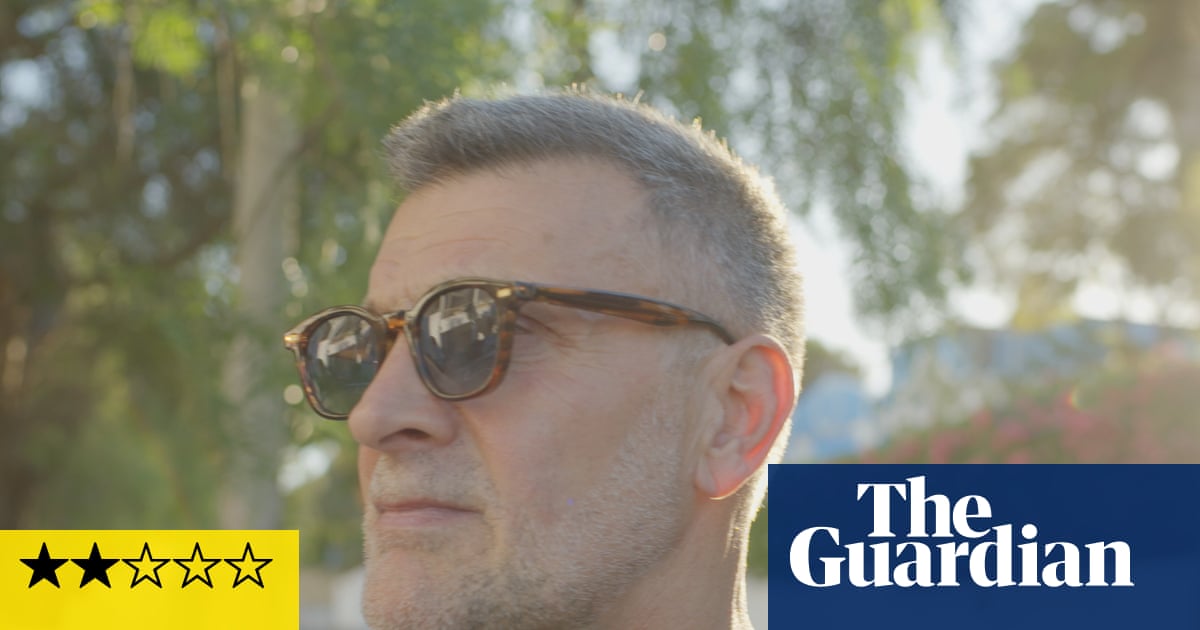The framed photograph hangs just inside the front door. It shows Dean Windass, somehow larger than life even with his back turned to the camera, standing with arms aloft on the balcony of Hull city hall and inhaling the adulation of thousands. Two days earlier he had, at the age of 39, scored a winner for the ages at Wembley and sent his boyhood club to the Premier League. He could not have caught the ball any more sweetly after Fraizer Campbell had chipped it across; it was no hardship that, even then, he knew it would follow him for ever.
“It changed my life,” Windass says, sitting in his living room on a quiet May morning. “I scored 234 goals and everyone only talks about that one.” To this day he swears a scorcher at Wycombe in 1992-93, “volleyed in with my left foot from 950 million yards”, was superior to his museum piece from 2008. But he is synonymous with the playoffs now; they are his thing, a sporting event he still anticipates like few others, and when we meet he correctly predicts Sheffield United will meet Sunderland in Saturday’s Championship final.
That is the uncomplicated side to Windass, who happily describes himself as “the most boring man you’ve ever seen in your life” during weeknights watching football, soaps or documentaries. In the public eye he was always a showman: a bustling menace on the pitch and pantomime villain when playing to the gallery of a goading opposition support. “It spurred me on,” he says. “I got ‘you fat bastard’ and loved it. The bigger the stage I played on, the better I performed. Some people can’t handle it but I thrived on it.”
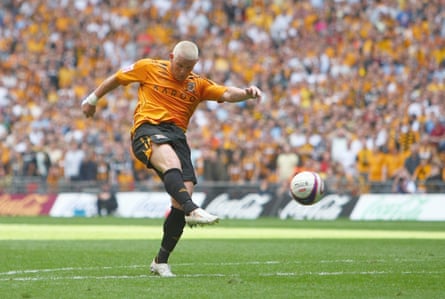
Beneath the bravado there was plenty more swirling away: Windass has been candid about his post-career struggles, which may have been caused by a combination of unresolved childhood issues and the degradation of two decades’ day-to-day structure. He made two suicide attempts and spent 26 days in rehab for alcohol dependency; he was made bankrupt through debts to HM Revenue and Customs incurred via a film investment scheme that stung numerous ex-pros. Windass never shrank from any of that and has tried to help others experiencing mental health difficulties.
On top of these problems it hardly feels fair that last year Windass was diagnosed with stage two dementia, an early phase of the syndrome. John Stiles, the son of England’s 1966 hero Nobby, is a friend from the after-dinner speaking circuit and asked him to take a diagnostic scan. Windass took some persuading but, after learning more about Stiles’ work with Football Families for Justice, which is campaigning for families of former players affected by brain injuries to receive proper financial support, agreed to be examined. Nobby Stiles died with dementia in October 2020.
“I went into it with my eyes wide open,” Windass says. He had not sensed any problems at the time, bar what he deemed standard bouts of forgetfulness. “I decided to get the scan because I thought it would be worth it even to help one family. And that it might be my family in five or 10 years’ time. I was a guinea pig, I didn’t feel ill and wasn’t bad at the time.”
Over a Zoom call that his fiancee, Kerry, also attended he was told the scan had found a shade on his brain. He says the consultant told him a career of heading footballs was likely to have contributed. At the time he was 55. “They’ve said I could be like this for half a decade, a decade, or it could deteriorate,” he says. “I’m not happy about it; I wish they’d said I was all clear and then we wouldn’t be having this conversation now. But look, I could go out and get run over by a bus tomorrow.”
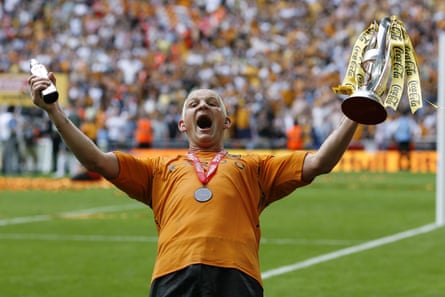
His diagnosis was revealed in January when the former Manchester United defender David May, a friend of Windass and Stiles, was given the green light to announce it on television. Until then Windass had elected not to spread the news. His older son Josh, who plays for Sheffield Wednesday, found out while having coffee with his teammate Barry Bannan. It turned out Bannan’s father had just heard May’s announcement.
Windass put on the face everyone else knew. “I tried having a bit of fun with it as that’s my character,” he says. “The next day I walked in my local pub and everyone’s going: ‘My God, are you all right, are you OK?’ I went: ‘Yeah, I’m fine thank you, but I’ve forgotten my wallet!’ That was the best way for me to deal with it.”
The more serious element is that he knows trickier days will come. He goes about his daily business with few hitches but Kerry already manages much of his schedule and the load on her will eventually increase. She runs a successful beauty business in Hull but a partner can quickly come to feel lonely. “Nobody asked if Kerry was all right,” he says. “People come to her salon asking if I’m OK, but she’s the one who has to look after me.” It is why he sits squarely behind Football Families for Justice’s campaign for added support. Nobby Stiles’ care costs ran to £125,000; an initial fund of £1m set up by the Professional Footballers’ Association in 2023 was described by John last month as “not fit for purpose”.
There is a growing consensus much more will be required, and quickly. Windass agrees. “Nobby’s had to sell his World Cup medal to go in a home and should never have been in that position,” he says. While unwilling to directly criticise the PFA, listing the ways in which they have helped him through a range of difficulties, he hopes the level of assistance available can be greatly enhanced.
This month, two days before this interview, Windass’ former Hull colleague Andy Payton revealed his own dementia diagnosis at the age of 57. After his Zoom call, Windass had been urging those in his circle to take the scan. He estimates 10 to 15 have done so. “We were playing a charity game, Burnley legends against Bradford legends,” he says. “Andy came up to me and went: ‘I’ve gone and had that scan.’ I found out the other day; I’ve texted him. I tell all the ex-players I hang round with to go for it, because you never know the outcome.
after newsletter promotion
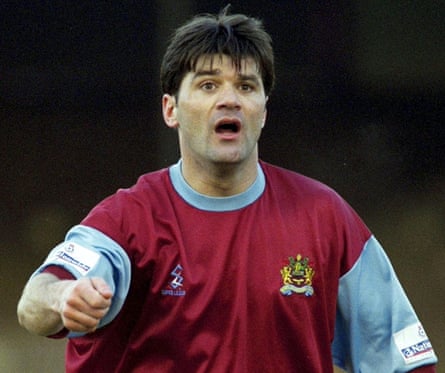
“Good player, Andy, good finisher. He was quick, I set up a few for him. Andy wasn’t really renowned for heading the ball on matchdays but he’d do it in training and that’s what happened.”
Windass looks back at half a lifetime of daily drills, head thrusting towards balls being flung across the training pitch, in which the notion of adverse consequences barely registered.
“When I got the diagnosis they asked me how many footballs I headed,” he says. “It’s not the fact of matchday, it was those crossing and finishing drills every day. Or for centre-halves, heading it as far as they could. After every session I’d do some finishing, head it in or volley it if they cross it in. I thought nothing of it. You couldn’t think about dementia then, but now we can. So let’s see if we can stop it at source now and reduce the damage.”
A restriction on heading in training is, he believes, more important than imposing a blanket ban. In 2021 the Premier League introduced recommendations that players head the ball a maximum of 10 times per session, one session a week, but the level of adherence is unclear. “I’m not saying stop heading it in games,” he says. “If the ball comes across in front of 50,000 on a Saturday I’m not saying: ‘I can’t head this or I’ll get dementia.’ In a charity game, if the ball was stood up in the box I’d head it, it’s instinct. But you can stop those drills in training.”
The stories, memories and admissions flow during a lunchtime with Windass. Even more of them are contained in his new book, Beyond the Final Whistle, which deals unflinchingly with the problems that sent him to the edge. “People always say you want to forget about your past and move forwards, but you go back to where it starts and it feels quite raw,” he says. “I’m an emotional person and I still get down sometimes.”
He works with his close friend Mark Crossley, the former Nottingham Forest keeper, and other retired players to raise money for a range of good causes through the charity Walking’s Brilliant. The group have walked long distances, scaled the three peaks, and the idea is to help one another in the process. “I didn’t realise how many ex-players have struggled with mental health,” Windass says. “It comes out when we’re walking. I’ve played against all these lads and I’m thinking: ‘Why are you on this walk?’
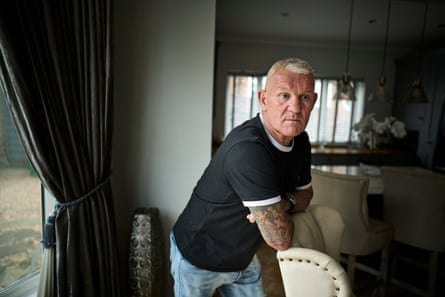
“If I spoke out about it in the changing room when I was playing, it’d be: ‘What’s wrong with you? Grow a pair of bollocks.’ Nobody spoke about it in my day and it nearly cost me. So when I got through it, I thought I need to tell people to talk.”
People stop Windass in the street to thank him for the videos he releases on social media, through which he has offered practical tips on how to get through a bad day. “I want to shed light on my experiences and help the public,” he says. On trips to Hull city centre he will buy food for the homeless or offer a lift to somebody waiting for a bus. Life has dealt Windass inconceivable highs and devastating lows; more of both may follow, but through the turbulence he has found a happy state of being.
“I’m very honoured to have had the career I did, and the friends I have who care about me,” he says. “You’ve been in bad places and think nobody loves you or cares.” As he speaks, that picture of a jubilant crowd whose dreams he had just made true is visible in the hallway.

 3 months ago
93
3 months ago
93















